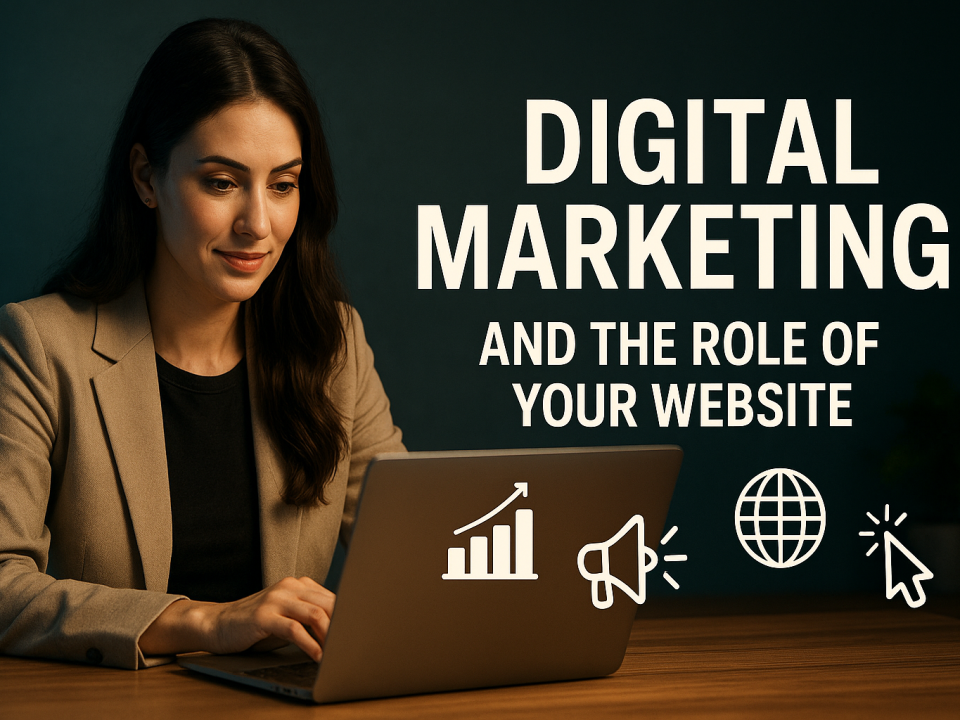In recent years, B2B e-commerce has seen tremendous growth and innovation, and this trend is expected to continue into the future. With technological advancements, changing consumer behaviors, and evolving business needs, the B2B e-commerce landscape is undergoing significant transformations. In this article, we will explore the key trends and innovations shaping the future of B2B e-commerce and discuss why having a website is essential for businesses in this industry.
Key Trends and Innovations
As the B2B e-commerce industry continues to evolve, several key trends and innovations are shaping the future of this sector.
1. Personalized and Customer-Centric Experiences
One of the most prominent trends in B2B e-commerce is the focus on delivering personalized and customer-centric experiences. Businesses are increasingly leveraging data and analytics to understand their customers’ needs and preferences, and are using this information to tailor their offerings and interactions. From personalized product recommendations to customized pricing and payment options, B2B e-commerce platforms are striving to create unique and seamless experiences for their customers.
2. Adoption of Advanced Technologies
The adoption of advanced technologies such as artificial intelligence (AI), machine learning, and Internet of Things (IoT) is revolutionizing the B2B e-commerce industry. These technologies are being used to streamline processes, enhance efficiency, and drive innovation. AI-powered chatbots are improving customer service, machine learning algorithms are optimizing supply chain management, and IoT devices are enabling real-time tracking and monitoring of inventory and assets.
3. Integration of B2B Marketplaces
B2B marketplaces are gaining traction as more businesses recognize the benefits of joining these platforms. These marketplaces provide a centralized platform for buyers and sellers to connect, transact, and collaborate. By joining B2B marketplaces, businesses can expand their reach, access new markets, and benefit from increased visibility and exposure.
4. Emphasis on Omnichannel Strategies
Omnichannel strategies are becoming increasingly important in B2B e-commerce, as businesses seek to provide a seamless and integrated experience across multiple channels and touchpoints. Whether through traditional sales channels, e-commerce platforms, mobile apps, or social media, B2B businesses are focusing on creating cohesive and consistent experiences for their customers.
5. Sustainable and Ethical Practices
The shift towards sustainability and ethical practices is influencing the future of B2B e-commerce. As businesses and consumers become more conscious of environmental and social impacts, B2B e-commerce platforms are increasingly incorporating sustainability and ethical considerations into their operations. From eco-friendly packaging to transparent supply chains, businesses are embracing sustainability as a core element of their e-commerce practices.
Why We Need Website
In today’s digital age, having a website is essential for businesses operating in the B2B e-commerce industry. A website serves as a virtual storefront, providing businesses with an online presence and enabling them to showcase their products, services, and capabilities to potential customers. Here are some reasons why having a website is crucial for B2B e-commerce:
1. Online Visibility and Reach
A website allows businesses to establish an online presence and increase their visibility and reach. With a well-optimized website, businesses can attract and engage potential customers, drive traffic, and expand their market presence beyond geographical boundaries.
2. Showcase Products and Services
Through a website, businesses can showcase their products and services in a visually appealing and informative manner. An online catalog or portfolio allows businesses to highlight their offerings, specifications, pricing, and other relevant details, making it easier for potential customers to explore and evaluate their offerings.
3. 24/7 Accessibility and Convenience
A website provides businesses with a 24/7 online storefront, allowing customers to access information, make inquiries, and place orders at their convenience. This accessibility enhances customer experience and enables businesses to capture opportunities and serve customers at any time, regardless of geographical locations or time zones.
4. Credibility and Trust
Having a professional and well-designed website builds credibility and trust for businesses in the B2B e-commerce industry. A visually appealing and user-friendly website reflects positively on the brand, instilling confidence in potential customers and partners, and enhancing the overall reputation of the business.
5. Marketing and Lead Generation
A website serves as a powerful marketing tool for B2B businesses, enabling them to implement various digital marketing strategies to attract and generate leads. From search engine optimization (SEO) to content marketing, social media integration, and email campaigns, a website can be leveraged to drive traffic, engage prospects, and convert leads into customers.
6. E-Commerce Functionality
For businesses engaged in online transactions, having an e-commerce-enabled website is particularly crucial. An e-commerce website provides businesses with the ability to facilitate online sales, process orders, accept payments, and manage customer accounts, thereby enabling them to conduct business transactions efficiently and securely.
Conclusion
The future of B2B e-commerce is characterized by rapid technological advancements, changing customer expectations, and evolving business practices. To thrive in this dynamic landscape, businesses need to embrace the latest trends and innovations, and having a website is fundamental to their success. As the industry continues to evolve, the role of B2B e-commerce will become increasingly significant, providing businesses with transformative opportunities and new avenues for growth and expansion.
FAQs
Q: Why is personalized customer experience important in B2B e-commerce?
A: Personalized customer experiences are important as they enable businesses to understand and cater to the unique needs and preferences of their customers, leading to enhanced satisfaction, loyalty, and long-term relationships.
Q: What are the benefits of integrating B2B marketplaces?
A: Integrating B2B marketplaces can provide businesses with access to a broader customer base, increased visibility, improved efficiency in transactions, and opportunities for collaboration and partnership with other businesses.
Q: How can sustainability practices impact B2B e-commerce?
A: Embracing sustainability in B2B e-commerce can lead to cost savings, enhanced brand reputation, and meeting the growing demand for environmentally and socially responsible business practices.
Q: What are some key features to consider in a B2B e-commerce website?
A: Key features to consider include robust product catalog management, account-based pricing and purchasing, seamless order management, integration with backend systems (e.g., ERP), and advanced customer self-service capabilities.
Q: How can businesses leverage their website for effective marketing and lead generation?
A: Businesses can leverage their website for marketing and lead generation through strategies such as SEO, content marketing, social media integration, email campaigns, and targeted landing pages for specific products or services.




